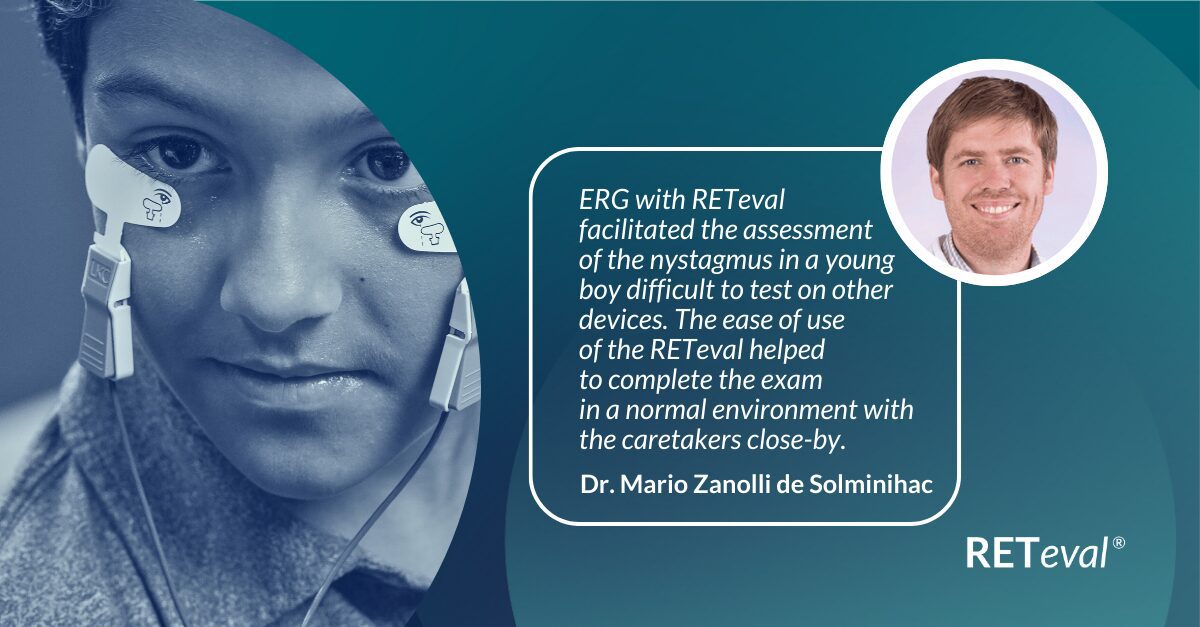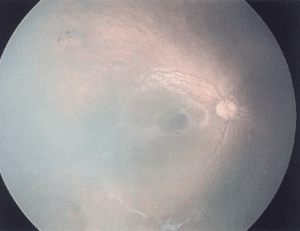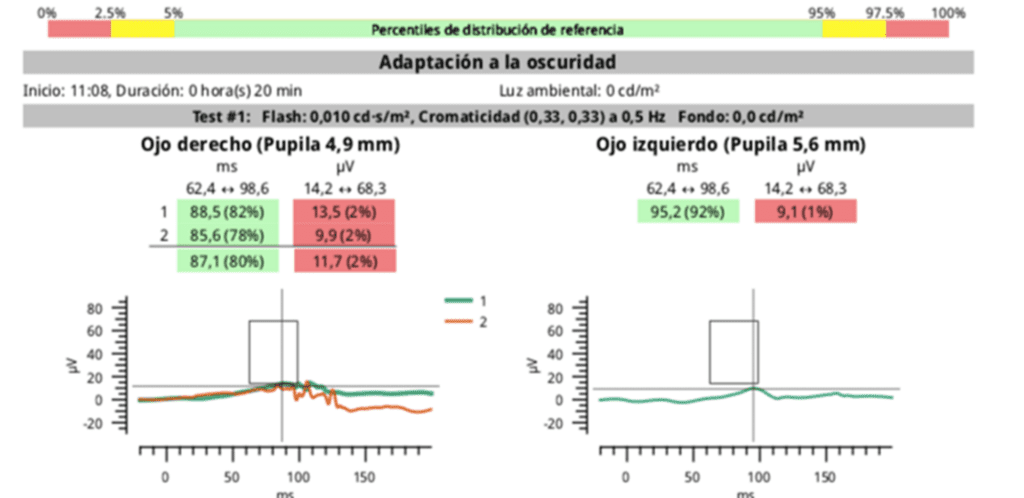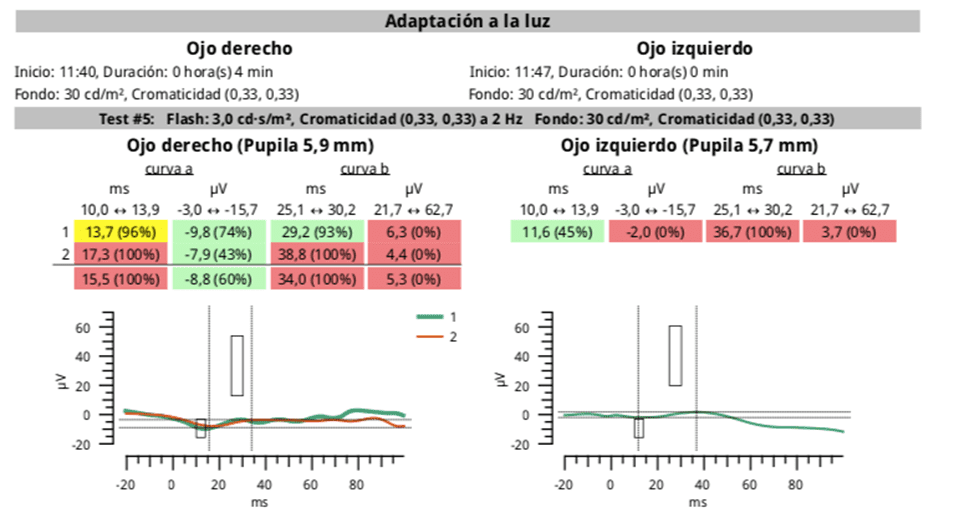Case study
Comprehensive Pediatric Assessment Using ERG in Challenging Cases
by Dr. Mario Zanolli de Solminihac, Dr Children’s Hospital Roberto del Río, Chile
A 4-year-old boy presented to our office with nystagmus for further assessment of required tests or treatments. The visual acuity was tested and found to be 0.3 in Snellen measurement. Taking OCT and fundus pictures showed to be very difficult due to age and nystagmus. The obtained images though, did not show any signs of abnormality.

Why was the ERG test performed?
The cause of the nystagmus needed to be verified to determine if further tests or treatment are warranted, especially since all imaging tests appeared to be normal.

What were the ERG findings?
The test with the RETeval ERG/VEP device was conducted in the office, and since the child’s caregiver (parent) was present, she/he was able to reassure the child during the test. Successful results were obtained without the need for sedation.
Both the light and the dark-adapted ERG showed significant abnormalities. This guided us to the conclusion that the patient has inherited retinal disease and we sent him for further genetic testing.
| Report 1 | Report 2 |
|---|---|
 |
 |
Learn more about the use of the RETeval ERG/VEP device in pediatrics:
How did ERG influence the patient’s care?
The ERG findings allowed us to counsel the family about genetic testing. We advised them to attend low vision care and regular ophthalmologic assessments. Furthermore, the boy obtained low-vision support and proper care for his future development.
Conclusion
The ERG assessment using RETeval enabled a comprehensive evaluation of a young boy with nystagmus, facilitating a diagnosis in a familiar setting. This efficient process eliminated lengthy wait times or referral to more distant clinics, ultimately guiding the patient to appropriate resources.



